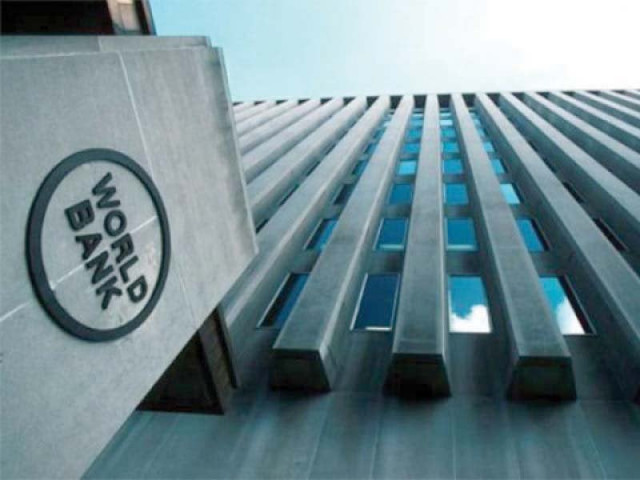WB approves $223m with focus on banking services, Karachi
Aims to expand financial services in Pakistan, improve living conditions

The lender plans to work closely with the Central Directorate of National Savings to provide more efficient and convenient access to financial services to 7 million clients through computerisation of their financial systems. PHOTO: AFP
The Washington-based lending agency approved the Financial Inclusion and Infrastructure project estimated to cost $137 million, although the Planning Commission had initially raised concerns over the long-term viability of the scheme and huge sums allocated for paying consultancy fees. The lender also approved another loan of $86 million to improve living conditions in Saddar, Korangi and Malir areas of Karachi.
Pakistan aims to borrow another $8.1b in the coming year
Both credits are financed by the International Development Association, the World Bank’s fund for the poor, with a maturity of 25 years, including a grace period of 5 years.
The two new projects have a strong element of inclusion that is at the heart of the World Bank’s partnership with Pakistan, especially where women, youth and the poor are concerned, said Illango Patchamuthu, the Country Director for Pakistan. He said that 5% of the world’s unbanked population lives in Pakistan and there is a need to change this to empower people financially, especially women.
The World Bank said that the project will help upgrade Pakistan’s payment systems to ensure affordable and faster payment services. The project is designed to implement selected actions of the National Financial Inclusion Strategy.
The lender plans to work closely with the Central Directorate of National Savings to provide more efficient and convenient access to financial services to 7 million clients through computerisation of their financial systems.
The project will improve access to financial and banking services for 50% of all adults, half of them women, throughout Pakistan by 2020. It will also boost private sector credits to small and medium businesses to 15% from 7% in 2015.
However, the Pakistani authorities have pushed through the project in haste without a proper cost-benefit analysis. Last month, the Executive Committee of National Economic Council (Ecnec) had cleared the project despite reservations expressed by the Planning Commission over its planning and proposed execution.
A significant portion of the loan will be used up in paying consultancy fees in the name of expanding access to finance for small- and medium-scale enterprises. According to the Planning Commission, the finance ministry did not conduct a feasibility study before processing the loan request.
The sustainability mechanism of activities to be executed under the project has not been provided in the PC-I document, says the Planning Commission. Even the interest rate, payback period of the loan and its terms and conditions had not been mentioned in the PC-I document, demonstrating the finance ministry’s ill-planning. The Planning Commission was not given enough time for the project’s technical evaluation. Moreover, the finance ministry wants to carry out some activities under the project, already being carried out under another project. The Planning Commission had also objected to Rs238 million consultancy cost built in the project and the purchase of two vehicles in the name of national financial inclusion.
The Ecnec had set up a committee under the chair of Secretary Planning Shoaib Siddiqi to address these concerns. The committee’s meeting has taken place and the finance ministry has addressed the concerns, said Secretary Planning while talking to The Express Tribune.
The World Bank also approved $86 million loan for the Karachi Neighborhood Improvement Project that it said will benefit almost 1 million residents, business owners and commuters by improving living conditions in the Saddar, Korangi and Malir areas of Karachi.
Karachi contributes about 15% of the country’s economy and the support would improve public spaces, mobility and safety for its citizens, said Illango.
Garment manufacturers seek Rs60b for export industry
The project will help improve the safety, accessibility, and attractiveness of public spaces in Karachi, such as streets, parks, city squares and pedestrian areas. It will ensure equal access to all including women, youth and the poor. The project will also make it easier for the public and investors to access services such as construction permits and business registrations.
This project will support the setting up of a multi-member Steering Committee that includes the local government, civil society and private sector. It will guide the development of the city by laying out a vision.
Published in The Express Tribune, June 17th, 2017.
Like Business on Facebook, follow @TribuneBiz on Twitter to stay informed and join in the conversation.


















COMMENTS
Comments are moderated and generally will be posted if they are on-topic and not abusive.
For more information, please see our Comments FAQ